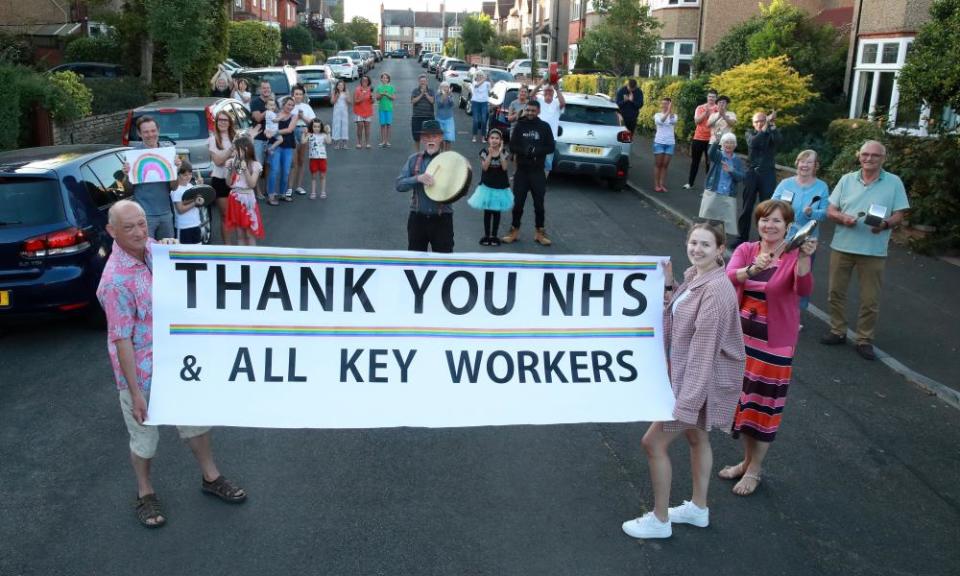Only 12% want a return to the old ‘normal’ Britain after Covid-19

Britons are prepared to pay higher taxes to turn the country into a kinder, more equal and supportive place to live after the coronavirus pandemic is over, according to new research set to be published this week. A poll carried out for the strategy consultancy BritainThinks reveals that just 12% of people want life to return to normal “exactly as it was before” once the pandemic is over.
The research shows three clear priorities are emerging: better funding for the NHS, better treatment and pay for essential workers, and an economic recovery that doesn’t just focus on London. There is also an appetite for a kinder society that prioritises better support for people struggling with mental or physical health problems, allows workers more time off with family and friends, cares about the environment and ensures high levels of employment.
Six out of 10 people would be willing to pay more tax to see the NHS better funded, an approach even favoured by 54% of Conservative voters. There is little support, by contrast, for a return to austerity: only 17% of those polled think the government should cut funding for public services in the future, to pay back the money borrowed to respond to the crisis. This is a marked shift from December 2011, when 60% of the UK public said they thought austerity was necessary.
“I hate it when people talk about the ‘new normal’ – it just makes me want to scream. But actually, people don’t want the ‘old normal’. They really, really don’t,” said BritainThinks founding partner Deborah Mattinson. “They want to support and value essential workers and social services more. They want to see more funding for the NHS. There’s a massive valuing of those services and austerity is totally off the agenda.”
She said this was also clear from the diaries of 50 British people from a wide range of different locations, lifestyles and backgrounds who have been keeping a weekly log for BritainThinks during lockdown. One 25-year-old diarist wrote: “Essential services are completely underfunded. We got through by the skin of our teeth. We may not be so lucky next time.” Similarly, a small business owner wrote: “Nurses have to be paid salaries commensurate with the value of the work they do.”
In another diary extract, a 65-year-old woman said that she did not want to see things go back to how they were: “I want a more equal society: I want us to tackle climate change and I want the divisions that were there before this crisis to be healed.” A parent with young children wrote: “I want us to create a more conscious and considerate world. Social care and the NHS are clearly underfunded, as is education, and so many people live in poverty.”
Analysis of the weekly diaries of the participants also highlights how people’s moods have shifted during the lockdown – from anxious and bored, to confused (after the government’s “stay alert” advice was issued) and angry (when details emerged of Dominic Cummings’s trek across Britain). More recently, as the lockdown restrictions ease, people have been feeling more hopeful and happy.
The research also shows that, despite an initial surge in community feeling, people are now feeling increasingly judgmental over how others are behaving, with 72% of those polled saying they have followed the lockdown rules more closely than the average person.
Mattinson recounted one extract: “One woman spotted her next door neighbour having some family in the garden before you were allowed to. Even though she wrote in her diary she’d noticed they were socially distancing and being very careful about the way they were sharing food, she felt completely enraged and it took all of her willpower not to call the police. People are feeling this very heightened sense of morality.”

 Yahoo Movies
Yahoo Movies 